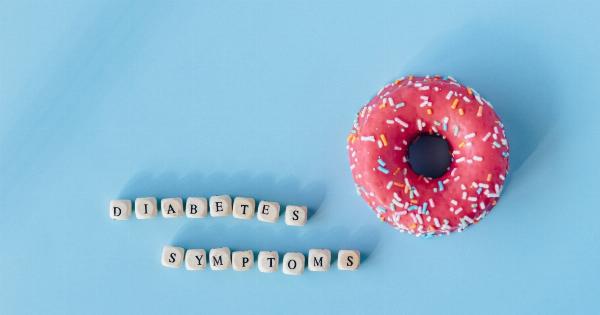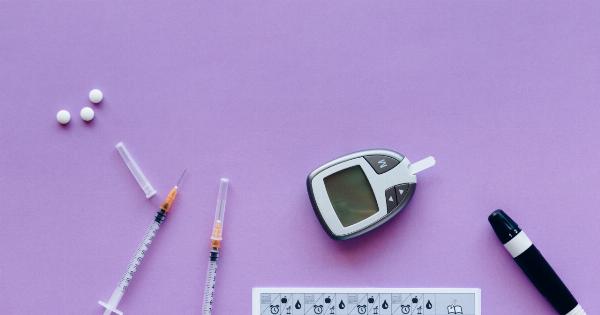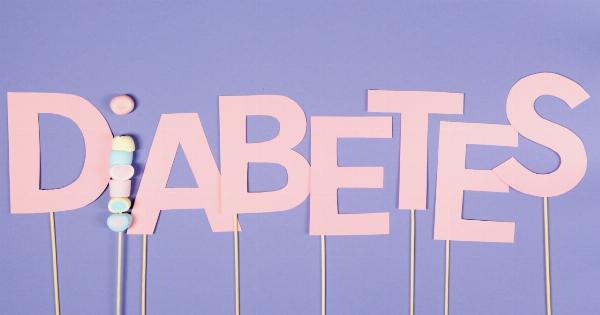Diabetes is a chronic condition that affects millions of people across the globe. In the UK, the National Health Service (NHS) plays a vital role in providing healthcare services to diabetes patients.
However, there are situations when emergency measures need to be taken to ensure the well-being of these individuals. This article explores the emergency measures that the NHS has in place for diabetes patients.
1. Diabetic Ketoacidosis (DKA)
DKA is a life-threatening condition that occurs when there is a severe shortage of insulin in the body. It is most commonly seen in individuals with type 1 diabetes but can also occur in those with type 2 diabetes.
The NHS has established guidelines for the management of DKA, which include hospital admission and the administration of intravenous fluids, electrolytes, and insulin.
2. Hypoglycemia
Hypoglycemia, or low blood sugar, can cause significant harm if not promptly addressed.
The NHS has established protocols for managing hypoglycemia in diabetes patients, which include the administration of oral sources of glucose or intravenous dextrose. Diabetic patients are educated about recognizing and treating hypoglycemia, and their families and caregivers are encouraged to learn about these emergency measures as well.
3. Hyperglycemic Hyperosmolar State (HHS)
HHS is a serious condition that occurs when blood sugar levels are extremely high, causing severe dehydration. It is more commonly seen in individuals with type 2 diabetes.
The NHS emphasizes the importance of hospital admission and intravenous rehydration for individuals experiencing an HHS episode. Prompt recognition and treatment are crucial to prevent life-threatening complications.
4. Diabetes Sick Day Rules
During illness or infection, diabetes patients may experience fluctuations in blood sugar levels. The NHS provides guidelines known as “sick day rules” to help patients manage their condition during such times.
These rules include monitoring blood glucose levels more frequently, adjusting insulin doses as necessary, and seeking medical advice if symptoms worsen or persist.
5. Mental Health Emergencies
Diabetes patients are at an increased risk of mental health issues, including depression and anxiety. The NHS has integrated mental health services within diabetes care to ensure proper support and intervention in case of emergencies.
These services may include counseling, therapy, or referral to specialized mental health teams, depending on the severity of the situation.
6. Education and Awareness Programs
The NHS recognizes the importance of educating diabetes patients about managing their condition and identifying potential emergency situations.
Specialized diabetes education programs are offered to patients and their families to enhance their knowledge and skills. These programs cover topics such as recognizing symptoms of complications, proper administration of emergency medication, and seeking appropriate medical help.
7. Emergency Helplines
The NHS operates emergency helplines that diabetes patients can call in case of urgent medical advice or assistance.
These helplines are staffed by trained healthcare professionals who can assess the situation over the phone and provide guidance on appropriate actions to take. This service ensures that diabetes patients have immediate access to medical advice, particularly in emergency situations where time is crucial.
8. Access to Diabetes Specialists
In emergency situations, it is crucial for diabetes patients to have timely access to specialists who can evaluate their condition and provide appropriate care.
The NHS ensures that diabetes patients have access to endocrinologists, diabetes specialist nurses, and other healthcare professionals who specialize in managing diabetes emergencies. This multidisciplinary approach allows for comprehensive and effective emergency management.
9. Continuous Glucose Monitoring (CGM) Systems
CGM systems provide real-time monitoring of glucose levels in diabetes patients. The NHS recognizes the importance of these systems in preventing emergencies and has made efforts to make them more accessible.
Some diabetes patients may be eligible for CGM systems through the NHS, particularly if they have a history of severe hypoglycemia or recurrent episodes of uncontrolled hyperglycemia.
10. Emergency Preparedness Plans
The NHS works with diabetes patients to develop personalized emergency preparedness plans.
These plans outline individualized strategies for managing emergencies, including contact information, medication supply considerations, and specific steps to take in different emergency situations. By having these plans in place, diabetes patients can be better prepared and equipped to handle emergencies.























